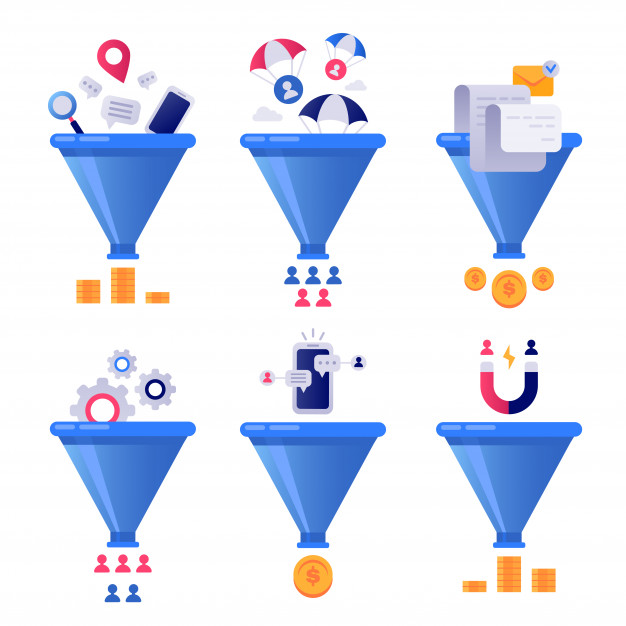Every business needs sales to funnel for a successful digital marketing campaign. It is crucial in converting prospects into actual customers (and profit).
What is a marketing funnel?
Neil Patel describes a marketing funnel as a series of steps a visitor needs to follow before they perform the end-goal, which is generally to purchase the product or service. This marketing concept uses a funnel as an analogy wherein prospects start as a large group and eventually end up with only a few buyers.
There are several stages a prospect goes through. The four basic stages are awareness, interest, decision, and action. Each step is unique and plays an important part in the journey of the prospect. Every time a stage is achieved, it signifies a deeper commitment towards performing the goal.
What is an email marketing funnel?
An email funnel is a specific type of marketing funnel. It refers to the journey of a customer through an email sales pitch. Unlike other digital marketing funnels, email sales funnel are intended to get the reader to purchase a product or service through a series of informational and persuasive emails.
You might ask: Why build a sales funnel with email when you can do it with other marketing platforms? This is because email gives you better control as compared to the social media platform. Over the past few years, we’ve seen how social media platforms have quickly changed their algorithms. Email also offers a wider reach with over 4 billion global email users to date. Likewise, email subscribers are more likely to buy than the social media audience.
According to developers of the email validation tool by Byteplant, a robust and clean email list is crucial to the success of email funnels. Firstly, you need to implement strategies to get subscribers to your email list. Then, you have to validate each account to ensure that they are genuine individuals. These preliminary steps are crucial in increasing the conversion rate.
Your email list serves as the foundation of your email sales funnel. Once you’ve fortified the foundation, you can then move on to improving the other aspects. Here are some pro tips to help you.
1. Plan how customers will move through the funnel
Design your funnel so that the prospects proceed through every step. At every stage, describe an action that they need to complete. For instance, the informational email (awareness stage) comes with a link that the recipient needs to click. This signifies that they are ready for the succeeding stage. There are email marketing automation systems like Constant Contact and MailChimp that can help simplify this step.
2. Send a series of welcome emails to recipients
The initial stages are crucial to the success of an email funnel. It can have a major impact on how many will proceed through the succeeding stages. Instead of sending a one-time welcome email, send them an exciting series of emails. Each email builds up the future mails so the audience continuously looks forward to future emails.
3. Continue to monitor your sales funnel
Although email marketing funnel can be automated, you still need to continuously monitor and update it. After a few months of launching the funnel, you need to analyze the metrics to find out if there are any issues. Some important data to check to include open rates, click-through rates, and conversion rates. If any of these metrics is problematic, you need to look into your strategy and consider adjustments. For example, if your emails are not doing as planned, then you should work on improving it.
4. Connect to new customers
If your email funnel is already successful at converting prospects into customers, the process doesn’t end there. You need to constantly expand the top end of the funnel by connecting to new leads. Implement effective ways to find potential customers. By continuously growing your client list, you can also increase sales.
5. Do not discount non-buyers
Consider non-buyers as “not yet” your customers. This means you don’t have to scrape them off your marketing list. Perhaps, they have not yet shown interest in your brand but will do so in the future. For example, a customer has opted into your newsletter but decided to buy from a different brand. When you maintain the connection with this non-buyer, you’ll be able to feedback and know why they did not choose your brand. Feedback information can help improve your email funnel and your product, so don’t miss out on the opportunity.
Use these tips to build an effective email funnel or tweak an existing one to make it more efficient. Remember, a sales funnel is a never-ending process that requires constant update and innovation. This ensures a good flow of people proceeds down the funnel – and is crucial to the success of your business.











